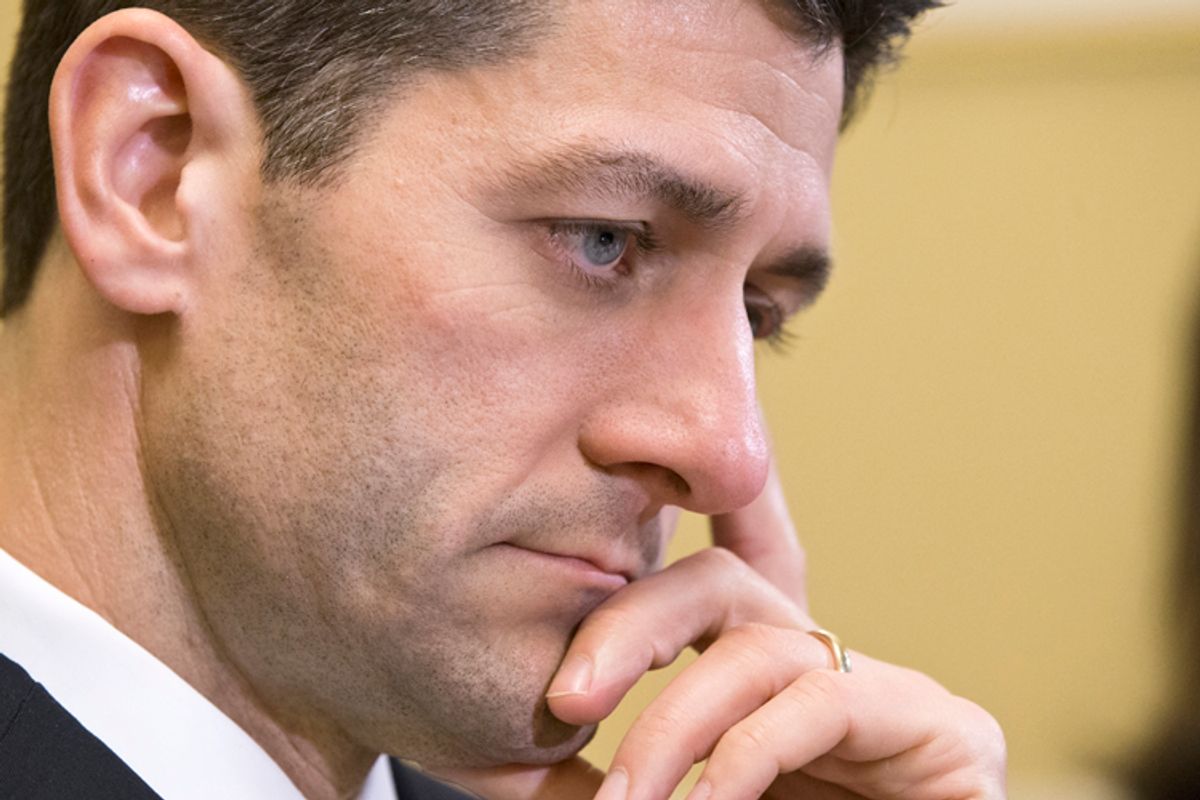For the last 70 years, poor schoolchildren have been able to enroll in the National School Lunch Program and receive free and reduced price breakfast and lunch at schools across the country. In the upcoming year, the NSLP will implement new eligibility rules that widen the program's reach and bring us one step closer to universal free breakfast and lunch for all students.
Under the new Community Eligibility Provision, public schools that serve a high number of impoverished children will be allowed to discard the NSLP enrollment formalities altogether and provide free lunch and breakfast to all of their children, regardless of income. According to the Center for Budget and Policy Priorities, 11 states and around 4,000 high-poverty schools have already gone forward with implementing this Community Eligibility Provision.
Surprisingly, this rather significant change in the program has largely flown under the radar of the national political discourse. Given the recent spate of Republican outbursts regarding free school lunch, it's a wonder conservatives haven't yet blasted the plan as emptying out the souls of children, à la Paul Ryan, or demanded that children affected by the expansion be forced to do janitorial work to earn the lunches, à la Jack Kingston. But for the time being, at least, the anti-poor malice that tends to rally the troops on the right against stuff like this has somehow been kept in check.
In most of the materials about the Community Eligibility Provision, the justifications are bureaucratic in nature. In schools that are chock-full of poor kids, the red tape involved in signing everyone up isn't worth it and inevitably means at least some eligible kids fall through the cracks. When a school isn't trying to identify the small percentage of its children in need of free lunch, but rather the small percentage not in need of it, it's better for the efficiency of administering the program to just give out meals to everyone.
These technocratic advantages seem to titillate the policy class, but universalizing eligibility in a school has greater benefits beyond the bureaucracy. One of the ugliest side effects of living in a society that hates its poor is that the recipients of free school lunch are often denigrated by their peers. Either through their parents, the media or other sources, schoolchildren come to learn that their peers with the special card are poor and further that being poor means they are inferior trash. The stigma that follows from this is so great that some kids choose to go hungry rather than be associated with the program.
Ensuring that everyone receives free school lunch eliminates this source of humiliation and stress. When the rich kids and the poor kids all eat the same food in the same way, the poor kids cannot be identified and bullied for their low social status.
Right now, the Community Eligibility Provision is limited in its scope. Schools with a lot of poor kids will be able to implement universal free lunch, but not any others. Yet, it is those other schools with far fewer poor kids where the stigma is probably most severe. The only way to tackle this anti-poor stigma everywhere is to implement a full-blown universal free lunch program, like countries such as Finland and Sweden have done.
Every kid needs to go to school and every kid needs to eat while at the school. We publicly fund the school and we should publicly fund the school meals. In addition to the stigma-reducing benefits mentioned above, such a move would just generally provide relief to parents of all sorts and signal a communal commitment toward ensuring no child goes hungry. Universal free school lunch is not on anyone's political agenda right now, but if the Community Eligibility Provision proves successful, it should be in the near future.



Shares